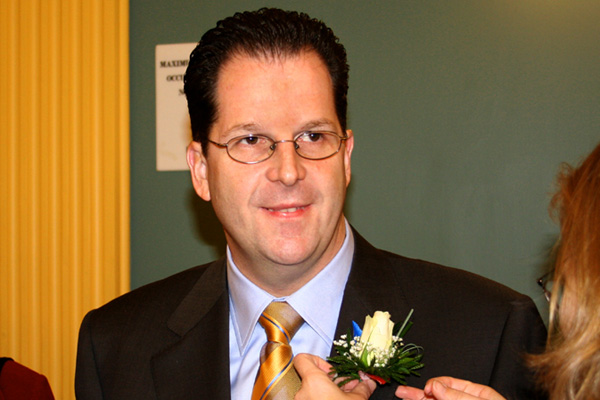
Measure Would Stem Development, Protect National Natural Landmark
TRENTON – Legislation sponsored by Senator Brian P. Stack to protect the Hudson River Palisades, as well as the residents and communities in the area, by prohibiting most new development on the cliff slopes and creating protective buffers within the region was approved today by the Senate Environment and Energy Committee.
“The Hudson River Palisades have been defaced by development in recent years. We will never be able to restore them to their natural state, or to re-establish the stability and security of the cliff slopes, but we can act to prevent further deterioration of the structure,” said Senator Stack (D-Hudson). “Preserving and enhancing the Hudson River Palisades as a prime natural resource will protect the residents and the communities in this area, as well as preserve this important national landmark.”
The Hudson River Palisades developed from natural forces over 200 million years ago, forming cliff slopes that support parts of New Jersey communities located atop and along these cliffs and protect the homes, businesses, community roads and structures that run northward along its base. Real estate development in recent years has cut into the bottom of the cliff faces, defacing and altering slopes. The installation of steel nets in some areas has been necessary to protect against and prevent rockslides.
The “Save the Hudson River Palisades Act” (S-2016) would prohibit any defacement of or cutting into the cliff slope or base of the Hudson River Palisades. Additionally, it would prohibit new development – except for linear development or development for public purposes – on any cliff slope or in the buffer area, created under the legislation, of any cliff slope edge or base in the Hudson River Palisades. Linear development means infrastructure such as utilities and utilities rights-of-way, gas and water pipelines or rights-of-way, and electric, telephone and other transmission lines and their rights-of-way. It does not include residential, commercial, office or industrial development.
“Development for years has chipped into the cliffs of the Palisades, altering the natural environment and compromising the integrity of the structure. Further damage could endanger the safety of the people and the buildings in our local communities,” said Senator Stack. “It is our responsibility to prevent overdevelopment that harms the cliffs and to more closely scrutinize the activities taking place in this area in order to ensure that our residents are protected.”
Under the bill, the width of the buffers adjacent to the cliff slope edge and the cliff base would be : (1) no more than 50 feet or less than 25 feet at the cliff slope edge; and no more than 100 feet or less than 50 feet at the cliff base.
A person who violates this bill would be guilty of a fourth degree crime, which carries a term of imprisonment of up to 18 months and a fine of up to $10,000. In addition to this penalty, a violator would be assessed a civil penalty of between $500 and $1,000 for each offense. Each day during which the violation continues would constitute an additional, separate, and distinct offense.
A person involved in the practice of architecture, building, construction, developing, engineering, real estate, or urban planning who violates the provisions of this bill may have his or her professional license or certificate suspended or revoked, and the person may be barred from the practice of his or her profession in this state by the appropriate professional licensing board or by a court for a period of: between three months and one year for a first offense; between one year and two years for a second offense; and not less than two years for the third or any subsequent offense, unless the appropriate professional licensing board or a court determines that a permanent license or certificate forfeiture would be appropriate.
A professional license or certificate of a corporation, partnership, association or other entity may also be suspended or revoked. In addition, the DEP and the Department of Community Affairs (DCA) would be authorized to withhold or delay the granting of any permit, or the consideration of any permit application, until the professional license or certificate of the practitioner has been reinstated, as determined by the appropriate professional licensing board or a court.
The committee approved the bill by a vote of 5-0. It now heads to the Senate Budget and Appropriations Committee for consideration.

